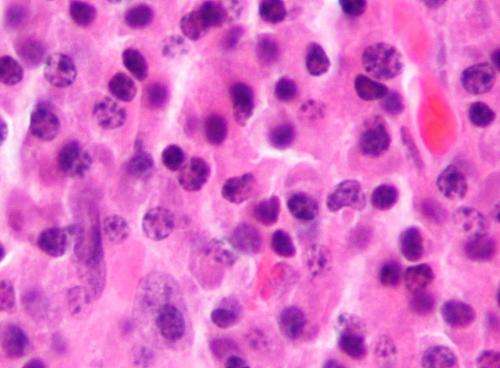
Researchers from SWOG Cancer Research Network, a cancer clinical trials group funded by the National Cancer Institute (NCI), part of the National Institutes of Health, have shown that isatuximab, a monoclonal antibody approved for the treatment of multiple myeloma, can effectively treat relapsed refractory AL amyloidosis, findings to be announced at the 2020 Annual Meeting of the American Society of Hematology (ASH), held virtually December 5-8.
AL amyloidosis is a rare disease, with about 4,500 cases diagnosed each year in the United States. Like its cancerous cousin, multiple myeloma, AL amyloidosis involves plasma cells, in this case causing them to produce abnormal protein fibers that build up in tissues and organs, leading to vital organ dysfunction, failure and death. Many drugs that work for multiple myeloma also work for people with AL amyloidosis. However, many AL amyloidosis patients see their disease return after initial treatment, creating a need for new therapy options. The SWOG team wanted to put isatuximab to the test with these relapsed refractory patients.
Emma Scott, MD, a medical director at the pharmaceutical company GSK and an adjunct associate professor in the Division of Hematology and Medical Oncology at Oregon Health & Science University (OHSU), designed the phase II trial while working full-time at OHSU. The trial is now led by Terri Parker, MD, of Yale Cancer Center, and Vaishali Sanchorawala, MD, of Boston Medical Center. The trial, S1702, enrolled 43 patients from 32 hospitals and clinics. All patients had previously been treated for AL amyloidosis, and 35 were eligible to receive the study drug. Patients received isatuximab intravenously every week for one 28-day cycle, then every other week for as many as 24 cycles. The median treatment time was about 12 months.
Researchers’ main objective was to determine patients’ hematologic response—a blood cell count that can be a good indicator of how well the treatment is working. Of the 35 patients who took isatuximab on S1702, there was an overall response rate of 77 percent. Of the 35 patients, hematological complete response was observed in one patient, very-good-partial response was found in 19 patients, and partial response was found in seven patients.
“This is encouraging news for patients who’ve already been treated for AL amyloidosis and who are looking for another, more effective treatment,” Parker said. “This is the first study of isatuximab in this disease population, and if a phase III study confirms our results, we’ve opened up another treatment option for patients with this rare disease.”
Source: Read Full Article
